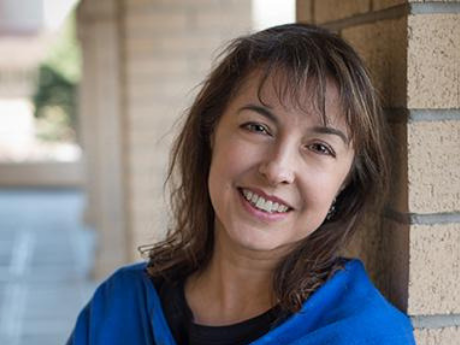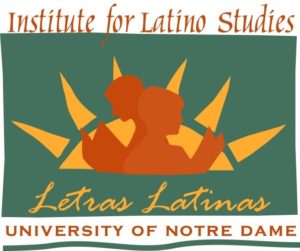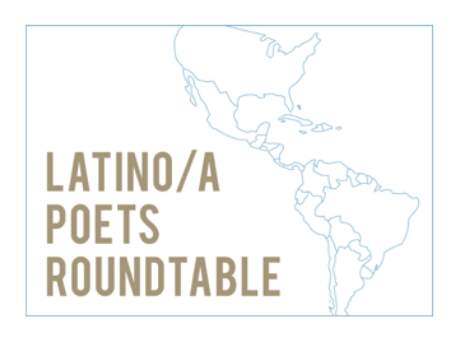Latino/a Poets Roundtable
The Challenge of the New Sun: An Afterword

I.
Poet Rigoberto González has said that today's U.S. Latino poets are "living in a time of siege," referencing both immigration raids and the continued marginalization of Latinos from the center of American poetry and culture. The implication for readers, listeners, and presenters of poetry (in print, on the radio, on stage, etc.) is that contemporary U.S. Latino poetry must be more consciously foregrounded, more frequently presented, and sought with greater intention in ALL our efforts. The poetry presenter who dodges a more conscious inclusiveness of Latino poets by saying, "I just promote good poetry, period" misses the opportunity to be a co-creator of the equality and justice the era of the New Sun challenges us to create. Where to begin? How to continue? Have a look at Letras Latinas' "A Year in Poetry: 2010," which names 30+ new books by Latino poets, published in 2010 alone. Enjoy a browse through the hyperlinked sections of the posted roundtable, or through the "Further Resources" list included here. Find work by one of our panel participants that you truly admire, and share it with an audience of one or many.
II.
"Many years / I have fought off your hands, Raza..." So begins acclaimed Chicana poet Gloria Anzaldúa's self-portrait, "Cihuatlyotl, Woman Alone." By addressing "raza" in the first line of the poem, she implicitly acknowledges and expects a Latino readership, but provides us a troubled welcome, at best. Writing as a lesbian feminist, she doesn't want us to bring constrictive gender norms or homophobia that hack away at pieces of her "that were different," and she condemns raza for attaching "tentacles / to my face and breasts." Yet her "hands off" stance toward identifying with a racialized community can't last.
Toward the end of the poem, she places her core self in the center of a racialized collective (raza) by acknowledging, "My soul has always / been yours one spark in the roar of your fire." This image of the soul as a spark in a communal fire implies a degree of acceptance of the fact that her own identity cannot be de-racialized or separated from her cultural contexts-of-origin. The poem closes with a brilliant embodiment of the paradox faced by writers working in racialized bodies. Though her soul shines because of, and through, its participation in the greater roar of a raza fire, her creative process as maker-of-poems-and-selfhoods retains an individuality distinct from the collective:
I am fully formed carved
by the hands of the ancients, drenched with
the stench of today's headlines. But my own
hands whittle the final work me.
I hear echoes of the poem's complex relationship to "community" in the dialogue we've constructed here, together. Blas Falconer notes how his early ethnic identity was formed partly inside and partly outside Latino communities, and he muses about how his time as partial-outsider made it hard for him to connect with Latino poetry (specifically Nuyorican) that seemed formed more fully within a community context. When Mark Smith-Soto alternately finds the phrase "Yo soy yo y mis circunstancias" (I am me and my circumstances) something to lament or something to explore for inspiration, he's right in step with Anzaldúa's complex response to her cultural circumstances ("hands off, but my soul is yours," to paraphrase), as well as her sense of being "drenched with / the stench of today's headlines" while still whittling the "final work"—herself.
These ten poets, and myself, express community and unity with each other when we're expressing our ambivalence about the role of communal Latinidad. And in any strong dialogue, there must be outliers to swim against the stream and help us question a consensus that may appear to be forming at the expense of varied views. And so onto our virtual stage stroll Felicia Gonzalez ("..there is not a time when I don't identify as Latina") and elena minor, who asserts, "...as a writer, I am not apart from who I am."
III.
There's one in every crowd—a listener at a poetry reading who questions my linguistic legitimacy. Comments range from the surprised "Your English is really good!" to "Why don't you write in Spanish—it's a beautiful language!" As a mixed-race Latina who claims English as her mother tongue, I find I'm not alone in having the topic of Spanish, and its poetic uses, raise a bucketload of insecurities from my ethnic sub-conscious. Poet Demetria Martínez alludes to these insecurities in the title of her essay collection, Confessions of a Berlitz Tape Chicana, and Juan Morales identifies them when he writes here that "my mastery of Spanish remains limited" and that this "leads to struggle...and personal anxieties" in his work as a writer. Interestingly, Hope Snyder (a native Spanish-speaker) also expresses personal anxiety about the fact that she writes primarily in English—not because her knowledge of Spanish is limited, but because she's a Colombian Latina poet living in the U.S. and is faced with certain expectations about who a Colombian Latina should be ("people have suggested that I translate [my name] to Esperanza").
An old joke about an undocumented worker fleeing an immigration officer goes like this:
Migra: Why are you running?
Worker: Because you're chasing me!
Readers, Latino and otherwise, might ask of this roundtable, "Why are you harping on about your situation as Latinos? Why can't you just be poets/people, first?" Answer: "Because we keep getting called Latino first!" Or—Answer: "Latinos. Are. Poets. Are. People." Our organizing term for the assembly of this roundtable—"Latino"— comes both with expectations that may veil us from would-be readers AND rich roots that may anchor us in the maelstrom of shifting ideas about the relationship of poetry to self and society.
IV.
Who is this Maria Melendez, and how did she end up getting referenced in a few different posts? Obviously, the references herein can be taken with a grain of salt, in that I was the moderator of this discussion and it's not inconceivable that my name would pop into participants' minds as it was popping into their inboxes from time to time. Beyond that, make what you will of discussion participants' claims about my, and others', work. I mean this posting to be one contribution to a larger conversation that includes a groundswell of Latino poets and Latino poetry advocates. I invited participants whose work includes both the crafting of their own poetry and the presentation of others' poetry in magazines, readings, etc., and I tried to include among the group some names that might not spring immediately to mind when one contemplates "contemporary U.S. Latino poetry." The group was limited to ten out of concern for the final product not being too unwieldy, but of course this means our efforts, alone, were incomplete—as is any single effort to map the marshlands where poesía and familia commingle.
Our group extended the dimensions of the discussion to include immediate family, and then the dysfunctional "family" that is one's social milieu, out to the spiritual world beguiling us with its ineffable magic. Emma Trelles points out that participation in syncretic rituals (lighting candles, surrendering to Afro-Cuban jazz percussion) provides magic transport to "a welcome sense of smallness," a state of awareness in which her "own concerns are but little seeds scattered in some infinite cosmic garden."
The power of music in our own creative processes became another shared theme, as is fitting for a discussion by practitioners of poetry. The recurrence of rock and punk rock as important veins for early inspiration came as a surprise to me, but their importance to several in the group is unmistakable. Albino Carrillo recalls listening to "a great deal of corridos, rancheras, [and] norteñas" early on, but he also notes that he self-identified as "a rock and roller for a long time, and in terms of my poetry I was more influenced by Bob Dylan ... John Lennon and Michael Stipe than by Jimmy Baca." For my part, my early aural sense was formed by my father's playing of both classical piano and mariachi guitar, and my mother's rehearsal of alto parts for classical choral arrangements as she worked around our house. (Her preparations for Valley Chorale Society performances mean that I now have very sentimental associations with some specific bars of the Messiah that she used to sing over and over again—maybe they were especially tricky, or just especially pleasurable to practice.) When the background soundscape of our home wasn't filled with live music, the LPs of Lola Beltrán and Peter, Paul & Mary served as sound-track to my youth.
Rereading these sentences, I see it comes across as too idyllic—there was also silence, lots of taut silence that, for my own survival's sake, I strained to discern and decode. Intuition became my diving rod in this search for subterranean meaning in silence's blank terrain. While I'm consciously aware of wanting to tend toward music as I write, it's likely a strained listening at silences also hovers as a lingering, if less easily named, muse. Reading and re-reading the roundtable participants' thoughts on music has inspired me to reexamine, as a writer, parent, teacher and editor, what environmental influences create the sounds we take in and influence the sounds we make.
Raina León brought forward a powerful aural experience she had at a poetry reading, hearing three Latinas who read in English and Spanish command the stage at the Acentos Bronx Poetry Showcase. She marks it as a touchstone moment for her motivation as a writer, remembering that she felt, "these women were Amazon in their force and beauty." The women's performance transferred to her that spark of passion so key for emerging poets: "God, I want to write like that."
Raina's invoking of this memory demonstrates the importance, for a developing woman poet, of experiencing the work of other women poets to understand herself as a potential maker of poetry-action. In recognition of this reality, I brought gender to the fore of a conversation in which it may otherwise have receded into the background. I'd recently been asked by poet and publisher Carmen Giménez Smith to contribute to a discussion about gender and publishing at the VIDA site, and the ways poetry by women is produced and received is routinely on my mind, as woman poet and publisher. The importance of encountering women's poetry, or Latina poetry, specifically, for male poets (or for Latino poets, specifically) remains a subject touched on briefly here, with plenty of room for further elaboration in future conversations.
V.
Speaking of the future...the end of this venture implies the question...what's next? If we are to properly welcome the New Sun, ALL poetry promoters, including Latinos, have a duty to elevate Latino poetry by insisting it be heard, read and discussed to the point where no one could possibly conceive of American literature without it. The University of Notre Dame's Letras Latinas division of the Institute for Latino Studies, along with the Poetry Society of America, have modeled the way poetry promoters can share this burden by co-launching this roundtable. And, too, the many hands typing made light work of my moderation, and I'm so grateful to the participants for their generosity with both their time and the frank, risky exposure of their hearts and minds.
On an individual level, we U.S. Latino poets are called to keep on keepin' on. Que sigue la lucha. When I (or any Latino poet) am tempted to erase or downplay any of my human complexities in my poetry, in order to appear more closely related to some kind of accessible center, I risk relinquishing my own unique powers of perception. These powers come from all my conflicting I-ness and thou-ness, which is my Latinidad, writ broadly. Roberto Tejada implicitly warns against the relinquishment of these powers when he notes the inefficacy of poetry that fakes a "neutral position."
Tejada raises a mighty banner by lifting up, as ideal, poetics that can "rearrange the relation of poetry to citizenship and its field of action." Rearrange is a great operative verb—like shuffling a deck, or breaking a billiards rack, poetry can scatter the pieces that make up a whole, in order to release the potential energies in new wholeness or new fragmentation. The locked-in can be freed, the locked-out can break through. Where our brethren face unjust detention, Latino poetry practices freedoms, enacts freedoms, cuts freedom irrevocably into the picture. A fragile freedom, you might protest. Freedom of the heart and soul to explore creativity seems flimsy and insubstantial. But if such freedom is hard to grasp, it's harder, yet, to still. In its seemingly wispy insubstantiality, poetry slides between iron bars or walks through walls, a chain-rattling spirit that won't be ignored.
Exclusion is forced detention's twin oppression. In the U.S., Latinos are highly visible as marked targets for detention, but are nearly invisible as targets for inclusion in other aspects of U.S. culture. This remains the case in too many celebrations, presentations, and publications of poetry. (Alert: one male poet of color in any given line-up does not an inclusive roster make!) Where our poets face unjust exclusion or near invisibility, allies of U.S. Latina and Latino poetry rearrange our ability to detect the "essence" of what's at the core of being American—and, more deeply, promoters of U.S. Latina and Latino poetry (we? they? you?) rearrange the soul's possibilities, by letting our souls' action—our poetry—cascade into the great chemistry of human experience on this earth.
More Latino/a Poets Roundtable
Introduction to Latino/a Poets Roundtable
At its core, Latino literature is about the tension between double attachments to place, to language, and to identity.
Read ArticleLatino/a Poets Roundtable, part one
A roundtable conversation with poets Maria Melendez, Raina Leon, Hope Maxwell Snyder, Albino Carrillo, Felicia Gonzalez, Mark Smith-Soto, Blas Falconer, Juan Morales, Roberto Tejada, Emma Trelles, and elena minor.


